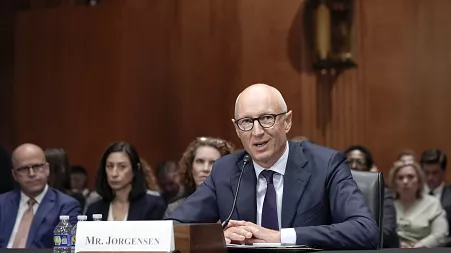Google has filed an antitrust complaint at the European Commission against Microsoft over alleged anticompetitive practices in its cloud licensing system.
The complaint targets Microsoft’s cloud platform Azur, which Google argues restricts European customers from moving their workload to competitors' cloud systems.
Google claims that the platform locks customers in through the Windows server, which is central for applications and Microsoft’s services, with Microsoft imposing financial penalties on businesses wanting to use other cloud providers, as well as security or interoperability obstacles.
"How do you remove the restriction Microsoft has created, given that a lot of IT departments and businesses are dependent on Microsoft products?" asked head of Google Cloud Amit Zavery, speaking to Euronews. "We want the Commission to act quickly, investigate and have Microsoft remove restrictions so that it becomes easy for customers to have choices," Zavery said, adding: "And the market in Europe can thrive and vendors can really compete for the business and innovate."
This is not the first time Microsoft has been in the sights of the EU antitrust enforcer for alleged unfair practices on the cloud market.
In 2022, the Amazon-backed cloud lobby CISPE - the Cloud Infrastructure Services Providers in Europe - filed a complaint with the European Commission over Microsoft’s contractual terms. The case was dropped last July after a €22m deal was struck with CISPE.
Amazon - AWS - Microsoft and Google lead the cloud market infrastructure worldwide, and the battle between the “Big Three” is fierce.
Microsoft is also facing the European Commission's antitrust probe launched on 27 July of last year over Teams, its communication and collaborating product. If the dominant position is proven, the company could face a fine of up to 10% of its annual revenue.
Microsoft has settled similar concerns raised by other European cloud providers amicably, even after Google hoped they would keep litigating, a spokesperson for the company said, adding: "Having failed to persuade European companies, we expect Google similarly will fail to persuade the European Commission.”
This article has been modified with a statement from Microsoft.
Disclaimer: The copyright of this article belongs to the original author. Reposting this article is solely for the purpose of information dissemination and does not constitute any investment advice. If there is any infringement, please contact us immediately. We will make corrections or deletions as necessary. Thank you.



